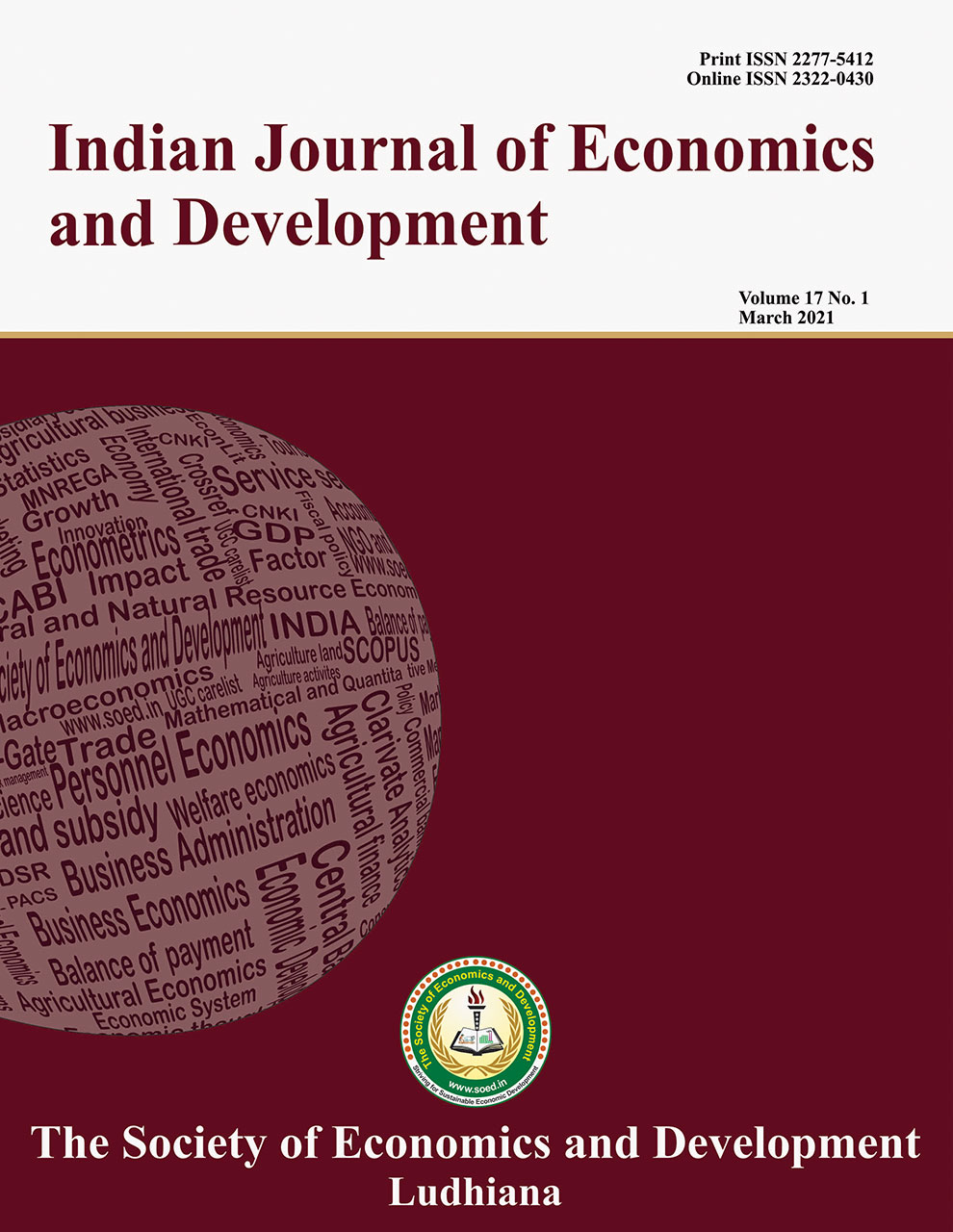Evaluation of Socio-Economic Conditions of Coldwater Fish Farmers: A Case Study of Sikkim

Price: ₹ 500
Author: Kul Bahadur Chettri1* and Ruma Kundu2
Author Address: 1Ph.D. Scholar, and 2Assistant Professor, Department of Economics, Sikkim University, Gangtok-737 102 (Sikkim)
Keywords: Fish farmers, Gini coefficient, income inequality, socio-economic.
JEL Codes: A10, A13, J10, O10, R20.
Abstract
The study analyses the socio-economic status, degree of income inequality and perceived socio-economic conditions of the fish farmers of the four districts of Sikkim. A total sample size of 200 fish farmers was selected from the four districts depending upon the presence of the number of farmers in each district. Purposive random sampling method was used and the results were analysed from descriptive statistics such as frequency count and percentages. The degree of income inequality was analysed through Gini coefficients. The factors that determined the perceived socio-economic living conditions were analysed with a logistic regression model. The socio-economic status of the people was found to be in good condition and there were not many variations among the fish farmers of different districts. Most of the respondents had pucca houses with the combination of firewood and LPG as a source of cooking fuel and also had access to basic amenities like electricity, drinking water and sanitation facilities in the households. The study also found that income inequality was not so severe amongst the fish farmers of the three districts except for the East district which had the strongest income inequality. The per capita income, housing condition and ratio of above primary education to total members had a significant impact on the perceived living conditions of the fish farmers.
Description
Indian Journal of Economics and Development
Volume 16 No. 1, 2020, 62-71
DOI: https://doi.org/10.35716/ijed/19137
Indexed in Clarivate Analytics (ESCI) of WoS
NAAS Score: 4.82
UGC Approved: UGC Care List Group II
Kul Bahadur Chettri1* and Ruma Kundu2
1Ph.D. Scholar, and 2Assistant Professor, Department of Economics, Sikkim University, Gangtok-737 102 (Sikkim)
*Corresponding author’s email: kulchettri33@gmail.com



